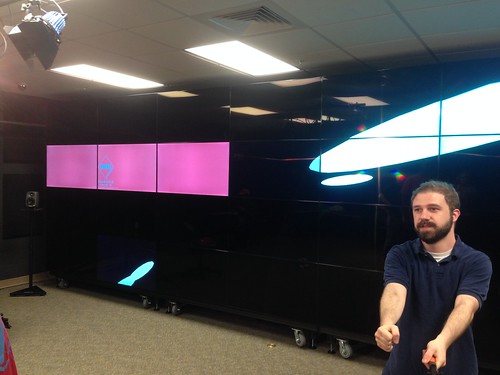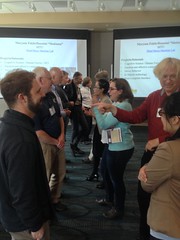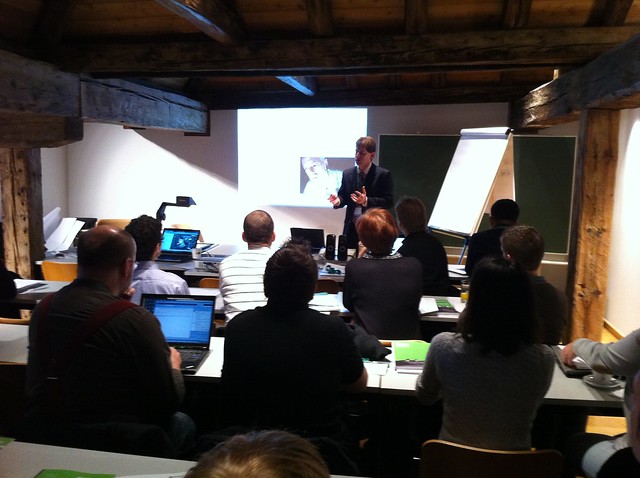Last week I attended the Developing Partnership and Advancing Driving Research workshop at Michigan Tech. The workshop was organized by Myounghoon “Philart” Jeon. Philart is Assistant Professor at Michigan Tech with appointments in two departments: Computer Science, and Cognitive and Learning Sciences. He is also the director of the Mind Music Machine (tri-M) Lab.

PhD student Steven Landry discusses motion sonification and the display wall at the tri-M lab

(Academic) speed dating at the workshop
The workshop brought together researchers interested in driving research: Bruce Walker (Georgia Tech) provided an overview of the tools different groups might use in driving research, and he also elaborated on his work with audio interactions. Andreas Riener (Johannes Kepler University Linz) spoke about topics related to autonomous vehicles. Collin Castle (Michigan DOT) discussed the use of connected vehicle technologies in Michigan DOT. I introduced some of our work with eye tracking in the UNH driving simulator. I also participated in my first speed dating session – the academic kind 😉
You can see more photos from the event on Flickr.






